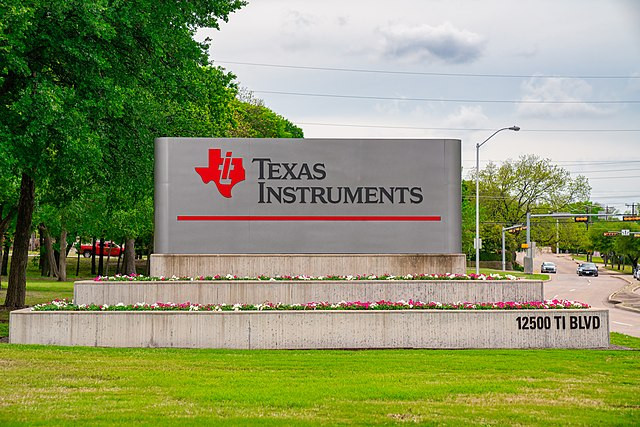Texas Instruments (TI) announced on Friday that it will receive up to $1.6 billion in funding from the U.S. Department of Commerce. The funding is part of the broader initiative under the CHIPS and Science Act, which seeks to revitalize the U.S. semiconductor industry amid growing global competition and supply chain concerns.
Texas Instruments, a leading player in the analog and embedded processing chip market, plans to use this financial boost to construct three new manufacturing facilities-two in Texas and one in Utah. The company has committed to investing $18 billion through 2029 in these projects, which are expected to create approximately 2,000 new manufacturing jobs.
Haviv Ilan, CEO and President of Texas Instruments, expressed optimism about the company's expanded manufacturing capabilities. "Our investments further strengthen our competitive advantage in manufacturing and technology as we expand our 300mm manufacturing operations in the U.S. With plans to grow our internal manufacturing to more than 95% by 2030, we're building geopolitically dependable, 300mm capacity at scale to provide the analog and embedded processing chips our customers will need for years to come," Ilan stated.
The funding aligns with the U.S. government's broader strategy to reduce reliance on foreign semiconductor sources, particularly from Asia, and to secure the supply chain for critical technologies. The CHIPS and Science Act, passed in 2022, allocates $52.7 billion for the semiconductor industry, including $39 billion in subsidies for production and $11 billion for research and development. The act is a cornerstone of the Biden administration's efforts to compete with China's growing influence in the global tech market.
U.S. Secretary of Commerce Gina Raimondo underscored the strategic importance of the investment in Texas Instruments. "With this proposed investment from the Biden-Harris Administration in TI, a global leader of production for current-generation and mature-node chips, we would help secure the supply chain for these foundational semiconductors that are used in every sector of the U.S. economy and create tens of thousands of jobs in Texas and Utah," Raimondo said.
In addition to the direct funding, Texas Instruments is expected to benefit from substantial tax incentives, including an estimated $6 billion to $8 billion in investment tax credits from the U.S. Treasury Department. The company will also receive $10 million dedicated to workforce development, ensuring a skilled labor pool to support the new manufacturing facilities.
The first of the new plants could begin operations as early as next year, marking a significant step toward achieving the company's goal of internalizing more than 95% of its manufacturing by 2030. The new facilities will focus on producing 300mm wafers, which are more efficient and cost-effective than the older 200mm technology. These wafers are essential in the production of critical components such as CPUs and other semiconductor devices used across various industries.
Texas Instruments' expansion comes at a time when other major semiconductor companies, including Intel, Micron, and Samsung, have also received substantial federal funding to enhance U.S. chip production capabilities. This collective effort is part of a strategic response to geopolitical tensions and the need for a resilient domestic supply chain.
The U.S. government's support for Texas Instruments is reminiscent of similar efforts to encourage Taiwan Semiconductor Manufacturing Company (TSMC) to expand its operations within the United States. These initiatives reflect a growing recognition of the importance of semiconductor manufacturing to national security and economic stability.





